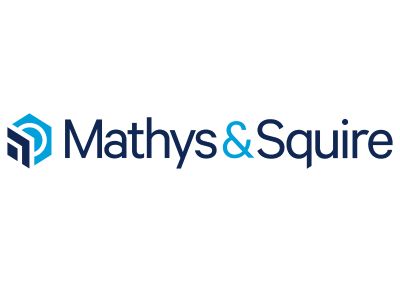The UK Intellectual Property Office (UKIPO) may be discouraging innovation in Quantum Computing by making it harder to patent technology in this sector, says intellectual property law firm Mathys & Squire. That risks driving developers of Quantum Computing to patent their inventions in Europe or further afield and risks making the UK a less attractive venue for Quantum Computing R&D.
The UKIPO currently treats quantum computational algorithms the same way as other (classical) software. Software can only be patented in the UK if it can be demonstrated to have a technical effect going beyond mere routine software automation. This usually means an effect on real-world processes outside of the computer – for example, software that manages a process in a chemical factory or provides improved image de-noising.
The existing framework for assessing the patentability of software has been developed over many years, but it can mean that emerging technologies (e.g., Artificial Intelligence, Quantum Computing) struggle under old guidelines.
Dr Edd Cavanna, Partner at Mathys & Squire, says: “The UK patent system and its treatment of strategically important technologies like Quantum Computing and AI is overdue a review. The risk is that we will drive cutting-edge Quantum Computing designers elsewhere unless we update our approach.”
“Changing the assessment framework may be a challenge, but it’s an important step if the UK is going to improve its attractiveness as a location for the Quantum Computing sector.”
The framework for patenting computer software has been developing since the 1970s. Then, much of the technical effect* (required for an invention to avoid software exclusions from patentability) could more clearly be broken down along hardware/software lines. Quantum Computing software allows the processing of data in a radically different way from conventional software but is still currently judged on the same basis in the UK.
Europe is a far better prospect for patenting quantum computing technology
By contrast to the UK, Europe’s approach to patenting quantum computing software is a lot more permissive. The UKIPO is not required to undertake a formal search and examination of a patent application until the examiner is convinced that the invention displays a technical effect. By contrast, the European Patent Office (EPO) will consider all aspects of patentability on filing. This allows a discussion between the inventor and the examiner from the get-go, allowing the inventor to emphasize the technical effect of the invention in the broader context of patentability in general.
Quantum software may seem like conventional software in its technical effect, as it is often based on mathematics or makes use of conventional software.** Therefore, the UKIPO will often raise an objection that the patent application is non-technical. This makes it difficult to proceed in the UK and means that the EPO is a more predictable and engaging forum than the UKIPO for patenting Quantum Computing software.
Quantum Computing leverages quantum mechanics to approach information processing in a fundamentally different way. At its core, Quantum Computation leverages the ability of a quantum object to exist not in a single state but in a superposition of two (or more) states. By analogy to classical computation, where a bit must be in a 0 or 1 state, a quantum bit, or qubit, can be in any superposition of the 0 and 1 states. By combining multiple qubits in carefully controlled superpositions, the information processing takes on a completely different form. Many developers hope Quantum Computers could one day be used to solve problems that are currently too difficult for computers today by leveraging this new way of approaching information. Areas looking to benefit from Quantum Computing developments include:
- Materials modeling and pharmaceutical discovery, who are hoping to use increased processing power to discover new materials, drugs, and vaccines faster.
- National security, as quantum computing, can be used in the R&D of materials for military vehicles and to help decipher encrypted messages.
- Optimization problems, finding ideal parameters in complex and rapidly changing systems, such as supply chains.
Outdated IPO rules may not be fit for purpose
Dr Cavanna points out that the UKIPO tends to regard Quantum Software as broadly equivalent to classical software. This means that a complete rethink of how information is represented and processed in Quantum Computing may not be given due weight under the current system.
Dr Cavanna says: “The longstanding framework for assessing software applications in the UK appears to be outdated in view of today’s technological innovations. A review of this framework to account for the unique properties of Quantum Computation would be very welcome, rather than applying blanket rules developed under the classical computing framework to this emerging field.
“Regrettably, a recent update to the framework under which the UK IPO assesses software, including quantum computer algorithms, has not shifted the dial as much as was hoped. Both patent examiners and inventors would benefit from a detailed review of rules in view of the contemporary technological landscape.”
*Technical effect means broadly that inventions in the software space need to show an impact beyond the computer, leading to a real-world improvement.
**Quantum computing often involves classically executed method steps and is usually reasonably mathematically complex.
You may also like…
Pravin Anand conferred with the APAA Enduring Impact Award
Pre-eminent IP Lawyer and Managing Partner of Anand and Anand, Mr Pravin Anand, has been conferred with the...
The quiet power of confidentiality clubs in SEP litigation
In standard essential patent (SEP) disputes, especially those involving FRAND (Fair, Reasonable, and...
A $10 million patent win reduced to a $1 lesson in damages
In a decision that will resonate as a stark warning to patent litigants, the US Court of Appeals for the Federal...
Contact us to write for out Newsletter













